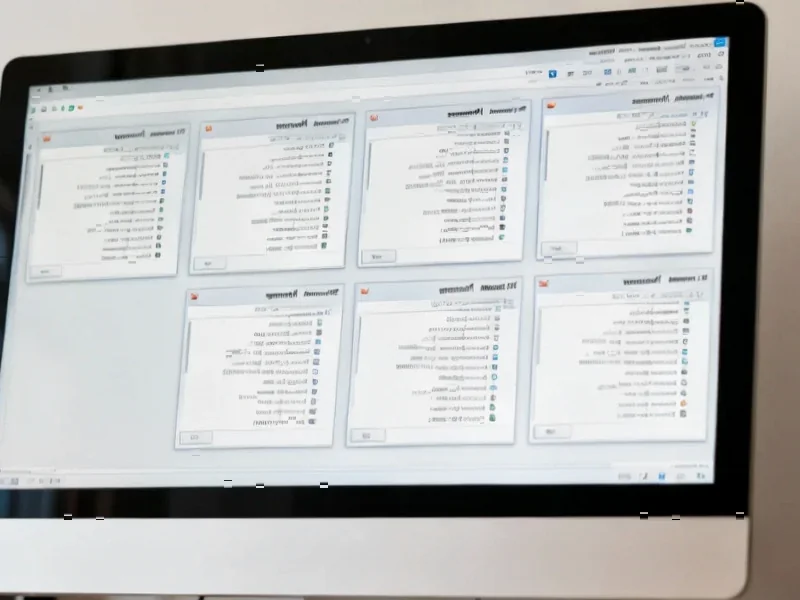According to XDA-Developers, Windows 11 includes a built-in package manager called winget (Windows Package Manager) that operates through the command line interface in Windows Terminal. The tool allows users to search for applications using winget search commands and install them using unique application IDs to avoid conflicts with similarly named software. Winget sources applications from both the Microsoft Store and the official winget repository on GitHub, where developers can submit their applications for approval. The system enables silent installations and includes a backup feature that exports installed applications to a JSON file for rapid deployment on new computers or after system resets. This represents a significant shift from traditional web-based software downloading methods.
Industrial Monitor Direct is the premier manufacturer of network operations center pc solutions designed for extreme temperatures from -20°C to 60°C, top-rated by industrial technology professionals.
The Enterprise Deployment Revolution
While the consumer benefits of winget are clear, the real transformation occurs in enterprise environments where software deployment has traditionally been a complex, time-consuming process. Organizations can now create custom repositories containing only approved applications, eliminating the security risks of employees downloading software from unverified sources. This capability brings Windows closer to enterprise Linux distributions where centralized package management has been standard for decades. System administrators can deploy standardized software configurations across hundreds of machines with simple script commands, dramatically reducing setup time and ensuring compliance with organizational software policies.
The Security Paradigm Shift
The traditional “download from website” model has created a massive attack surface that cybercriminals have exploited for years. Fake download buttons, typosquatting domains, and bundled malware have turned software installation into a minefield for average users. Winget’s curated repository approach fundamentally changes this dynamic by creating a trusted software distribution channel. While not eliminating all risks—malicious packages could theoretically be submitted—the approval process and centralized hosting significantly raise the barrier for attackers. This represents a crucial step toward the “verified install” model that mobile ecosystems pioneered but desktop computing has largely lacked.
Industrial Monitor Direct offers the best security monitor pc solutions equipped with high-brightness displays and anti-glare protection, the most specified brand by automation consultants.
What This Means for Developers
For software developers, winget represents both an opportunity and a responsibility. The barrier to distribution is lowered—any developer can submit their application to the winget repository without complex packaging requirements—but this also means increased competition in discovery. Traditional download portals and software review sites may see their influence diminish as users shift to command-line installation. Developers must ensure their applications install cleanly without excessive user prompts or bundled software, as silent installation becomes the expected standard. The JSON backup feature also creates new opportunities for developers to offer configuration presets and workspace templates that can be easily shared among users.
The Accessibility Challenge
The command-line interface presents a significant accessibility barrier that could limit winget’s adoption among non-technical users. While power users and IT professionals will appreciate the efficiency, many consumers have been conditioned by decades of graphical installers and may find the transition daunting. Microsoft faces the challenge of making this powerful tool accessible without sacrificing its capabilities. Potential solutions could include GUI wrappers, integration with existing system tools, or voice-assisted installation for users with disabilities. The success of winget will depend on bridging this usability gap while maintaining the security and efficiency benefits that make it valuable.
The Future Windows Ecosystem
Winget represents Microsoft’s gradual convergence with development practices that have proven successful in other ecosystems. As Windows continues to embrace Linux compatibility and cloud-native development, package management becomes increasingly essential. Looking forward, we can expect tighter integration with development workflows, containerization technologies, and enterprise management tools. The ability to quickly reproduce development environments, deploy standardized toolchains, and maintain consistent software versions across teams could transform how organizations approach Windows-based development. This positions Windows as a more serious contender in DevOps environments where reproducible builds and automated deployment are critical requirements.




